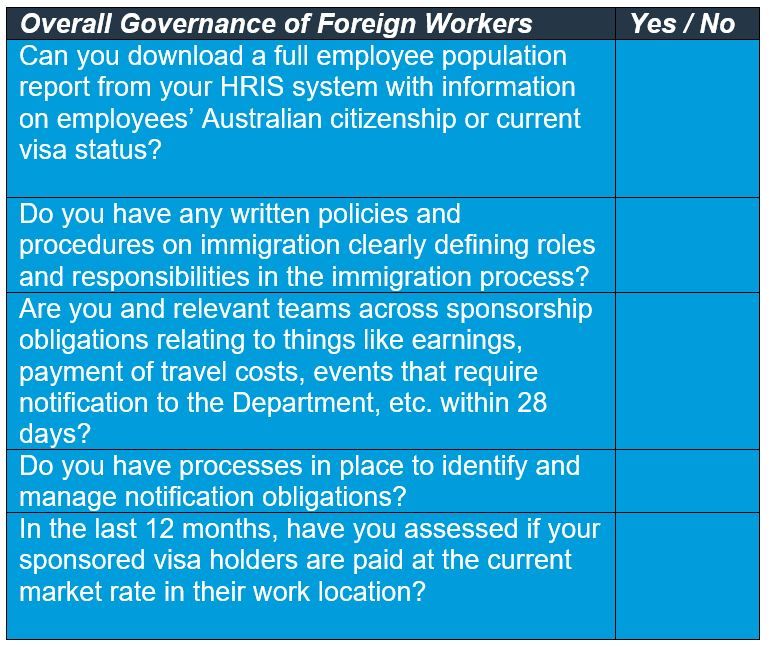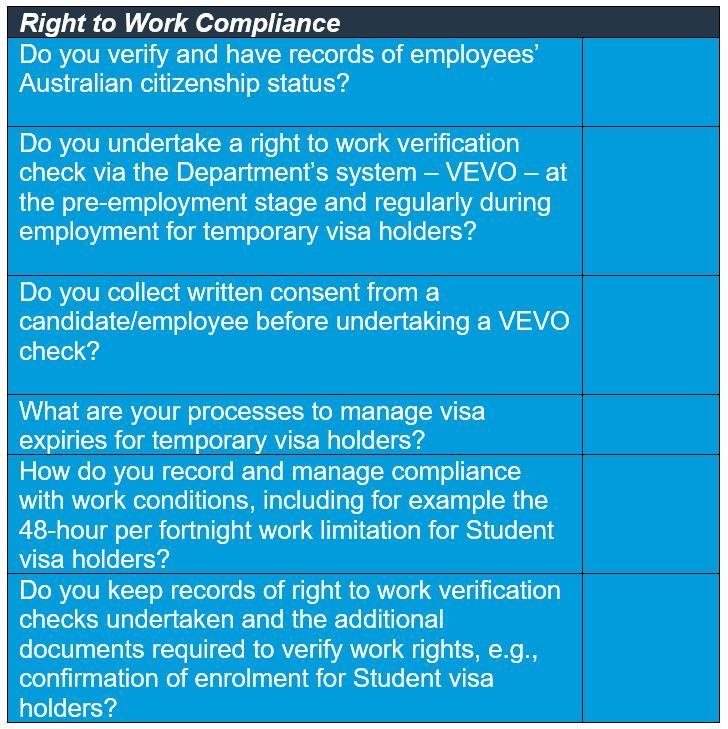The onset of a new financial year typically heralds immigration adjustments, and 2024 is no exception.
New Legislation Targeting Employer Compliance
To combat migrant worker exploitation, the Australian Government implemented the Migration Amendment (Strengthening Employer Compliance) Act 2024 on July 1. Key provisions include:
- Introduction of criminal offenses for coercing individuals into work arrangements;
- Authority to prohibit employers from hiring more migrant workers for a period following certain immigration or employment related breaches; and
- Enhanced penalties and compliance measures, like compliance notices and enforceable undertakings for Right to Work violations.
In support of this legislation, the Department of Home Affairs
(the Department) has bolstered its intelligence and compliance
capabilities, alongside implementing stricter post-arrival
monitoring to ensure employees are paid at least their nominated
earnings.
Educational Campaign and Enhanced Monitoring
The Australian Border Force's (ABF) Sponsor Monitoring Units have conducted an educational campaign for sponsors nationwide, raising awareness of sponsorship obligations and informing them of their obligations under the Strengthening Employer Compliance legislation. Increased monitoring and enforcement activities are now expected.
Preparation and Protocol Implementation
Employers are advised to establish internal protocols for ABF site visits promptly and ensure relevant information can be provided to the ABF officers without delay. In case of monitoring, the Department typically requests, within 14 days:
- Organizational chart;
- List of all visa-holding employees;
- Details of any sponsored employees who have ceased employment;
- Updates on business circumstances since the last sponsorship approval;
- Disclosure of adverse information; and
- Documentation for selected visa holders, such as employment contracts, payslips, leave records, evidence of market rates, etc.
Assessing Compliance Risk and Monitoring Readiness< /p>
Evaluate your readiness for a potential ABF monitoring using our
checklist below. The checklist can also help you to identify key
risk areas and actions required to mitigate these risks to protect
the business from consequences of non-compliance.


The content of this article is intended to provide a general guide to the subject matter. Specialist advice should be sought about your specific circumstances.


